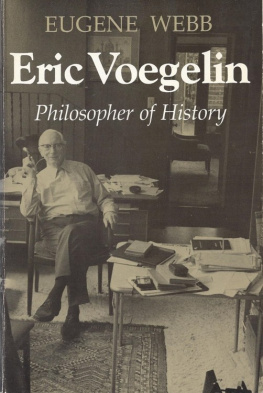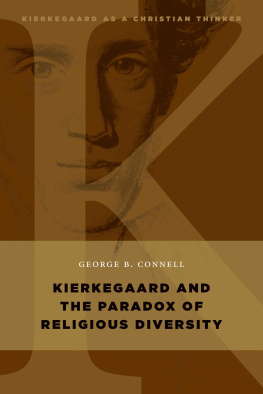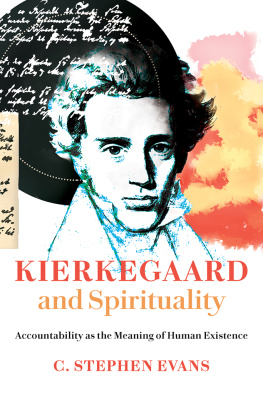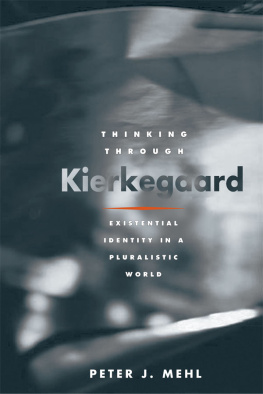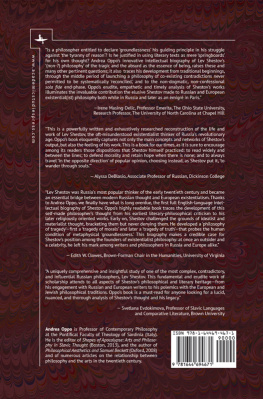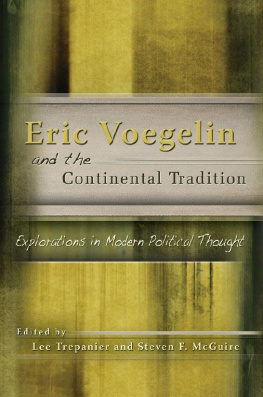Philosophers
of
Consciousness
Polanyi
Lonergan
Voegelin
Ricoeur
Girard
Kierkegaard
Philosophers
of
Consciousness
Polanyi
Lonergan
Voegelin
Ricoeur
Girard
Kierkegaard
EUGENE WEBB

Copyright 1988 by the University of Washington Press
First paperback edition 2014
All rights reserved. No part of this publication may be reproduced or transmitted in any form or by any means, electronic or mechanical, including photocopy, recording, or any information storage or retrieval system, without permission in writing from the publisher.
Library of Congress Cataloging-in-Publication Data
Webb, Eugene, 1938
Philosophers of consciousness : Polanyi, Lonergan, Voegelin, Ricoeur, Girard, Kierkegaard / Eugene Webb.
p. cm.
Bibliography: p.
Includes index.
ISBN 978-0-295-99437-6
1. ConsciousnessHistory. 2. Philosophy, Modern20th century 3. Philosophy, Modern19th century. I. Title.
B105.C477W43 1988
126.0904dc19
The figure The Fraser Spiral is reproduced with the kind permission of its original publishers, John Wiley and Sons, Inc., from Ralph M. Evans, An Introduction to Color (New York and London, 1948), p. 153.
The paper used in this publication is acid-free and meets the minimum requirements of American National Standard for Information SciencesPermanence of Paper for Printed Library Materials, ANSI Z39.481984.
For my daughter Christina,
a book of her own
Contents
1. Michael Polanyi:
Consciousness as Focal and Subsidiary Awareness
2. Bernard Lonergan:
Consciousness as Experience and Operation
3. Eric Voegelin:
Consciousness as Experience and Symbolization
4. Paul Ricoeur:
Consciousness as a Hermeneutic Field
5. Ren Girard:
Consciousness and the Dynamics of Desire
6. Sren Kierkegaard:
Consciousness as Incarnate Subjectivity
Preface
THIS BOOK HAS grown largely out of the force of questions that arose during my earlier studies, The Dark Dove: The Sacred and Secular in Modern Literature and Eric Voegelin: Philosopher of History, but it has also grown out of conversations and correspondence with a number of friends and colleaguesespecially John A. Campbell, Dale Cannon, Douglas Collins, Ray L. Hart, Howard V. Hong, Rodney W. Kilcup, Thomas J. McPartland, and William M. Thompsonwho asked further questions, made suggestions, and pressed me for further clarification. If it now succeeds in communicating what I feel is the urgency of the questions it raises and in exploring and elucidating them to some extent, much of the credit is due to them. It also owes an enormous debt to my conversations with Eric Voegelin. Of course, my expressions of gratitude should not be interpreted as implying that all of those mentioned would endorse everything I have said in these pages. In some cases, the objections they raised forced me to clarify points that may in fact have sharpened rather than diminished our differences, but where that is the case I am grateful for their stimulus and for the friendship and patience they have extended. I wish also to express my most special thanks to my wife Marilyn, who for twenty-four blessed years has been my constant companion in all my explorations.
Seattle, January 1988
Philosophers
of
Consciousness
Polanyi
Lonergan
Voegelin
Ricoeur
Girard
Kierkegaard
Introduction
Philosophers of Consciousnessthe reader may well ask what this title means. What might be meant here by philosophy and consciousness? And why the choice of these figures: Michael Polanyi, Bernard Lonergan, Eric Voegelin, Paul Ricoeur, Ren Girard, and Sren Kierkegaardto be discussed under that heading? These are questions that could be discussed at length, and in fact the book as a whole will be an attempt at an extended answer to them, but I will try to respond to them briefly here at the beginning.
The term philosophy, though somewhat slippery because of the variety of ways it has been used historically, is not inherently problematic. It has always referred to systematic, rational inquiry, with the particular type and scope of the inquiry varying according to the interests of those who engage in it. The pertinent question in the present context is what it means as a word for what the thinkers studied here are engaged in. What philosophy has been primarily for them is a reflective inquiry into what it means to function consciously as an inquirer and as a responsible agent. This means that they have focused not on questions regarding particular knowledge, such as that developed in the sciences, but on the development of a broad framework for the understanding of what knowing, valuing, deliberating, and deciding are as such and what it means to be the kind of being who engages in them.
Perhaps Lonergan can be taken to speak for the figures studied in this volume generally in his comments on the relation of philosophy as he conceived it to different schools of philosophy as well as to the various particular sciences:
What this means is thatif Lonergan can indeed be taken to speak, to a certain degree and in his own special idiom, for this group of thinkersthe term philosophy as used in the present context refers to systematic reflection on consciousness as such, on the variety of ways it is possible to operate in a humanly conscious manner, and on the basic character of the various objective correlates of such operations.
This, of course, brings us to the more problematic question: what is consciousness? The term itself has had a long and complex history. I will try here simply to mention a few of the major emphases that have developed in the past and remain influential, and then I will indicate briefly how the present figures relate to some of these traditional meanings and what specifically I think the term tends to mean in their writings.
The earliest uses of the term consciousness cited in the Oxford English Dictionary are from the seventeenth century, where they pointed in two rather different directions: toward the sharing of knowledge in common and toward private, internal awareness. An example cited for the former is Thomas Hobbes, Leviathan, I, vii, 31 (1651): Where two, or more men, know of one and the same fact, they are said to be Conscious of it one to another. This is a use of the word that may now seem rather odd, since the latter emphasis has tended to eclipse it, but it is germaneas I hope will become clear in the latter part of this bookto the school of thought known in France as la psychologie interdividuelle, represented here by Ren Girard and Jean-Michel Oughourlian. Both hold that the human self or center of consciousness is not a strictly individual thing or attribute, but is continuously formed in and by relationships between different human beings (hence the term interdividuel or interdividual, as will be explained in the chapter on Girard). They also see consciousness in this light not only as inherently social but as tending to be conflictual. This is an aspect of the problem of consciousness that has not been emphasized in philosophical discourse, but which I hope to show is much too important to neglect.
The predominant modern use of the term, however, derives from the latter of the two emphases mentioned abovethat which refers to what are usually called the inner perceptions of what is conceived of as a more or less self-contained individual. John Locke, the other major philosophical figure among the OEDs early examples, offered the following definition in his
Next page

